This type of forum, which brings us closer to German researchers and research centers, in a dialog we call Amazonia 4.0, is strategic to make bioeconomy an important economical basis to Amazonas”. This statement was made by the Rector of Amazonas State University (UEA) ‘during the opening ceremony to the ‘Bioeconomy Seminar Brasil-Germany’, last Tuesday (May 21st), at the UNA-SUS Amazonia Auditorium, at the School of Health Sciences (ESA/UEA).
The event discussed the development on the research in both Amazonia and Germany, from the studies on Biodiversity. In addition, the Seminar was a warm up to Green Rio 2019, one of the largest green economy fairs in Brazil in which UEA will take part of between May 23rd and 25th, at Marina da Gloria, in Rio de Janeiro.
Starting from the theme ‘Medicinal Plants: connecting forests, sciences and business’, the seminar speakers lectured about the reality of the studies on the Amazonian Region. “I am happy to see that UEA, in the same wavelength as our Governor, Wilson Lima, has searched for mechanisms to diversify our economy. The University, together with the means of production, brings the necessary tools to promote the expected social results, labor generation, and income to the inner cities”, said the Vice-Governor of Amazonas, Carlos Almeida Filho.
To the entrepreneur from Parintins, José Garrido, the Seminar is an opportunity to bring knowledge to the people in his community. “I work with diverse types of medicinal plants that the market has not offered for at least 35 years. There are industries that grind the plants to me and at my small lab I pack them appropriately,” he said.
Supporting the bioeconomy
The perspective of shaking up the primary sectors from the income generation was a theme stated by the Secretary of the Agriculture Ministry, Fernando Schwanke. “The idea of being here participating in this seminar is exactly this: to send a clear message to the Federal Government so that it grows the interest in supporting the bioeconomy initiatives in Brazil, because it is important to our country. We do want to use bioeconomy in a sustainable way in which the farmers, the rivermen, and the people on the extractive industries can benefit and generate their own income,” he highlighted.
Regarding the process of industrialization of the natural resources found in the forest, the coordinator of the Association to Bioeconomy in Amazonia (ABIO), Dr. João Matos, highlighted the importance of the research developed in the area. “Twenty years ago nobody would imagine that one day we would buy farinha do Uarini in the supermarket with production and food safety rules? This can also be part of the Free Zone, in the Manaus Industrial Sector, because the fibers extracted from our plant species may be used to make automobile parts, mobile phones, and our Universities have such knowledge,” he completed.
The event also counted with the presence and support of agents from the Amazonas Sustainable Foundation (FAS), the German Agriculture Ministry, the Amazonas State Court of Auditors (TCE/AM), the Oswaldo Cruz Foundation (FIOCRUZ), the University State of Campinas (UNICAMP), the Federal University of Rio de Janeiro (UFRJ), the Federal University of the South and Southeast Pará (UNIFESSPA), among others.
Translation: Maristela Silva
Photo: Joelma Sanmelo/ASCOM UEA






